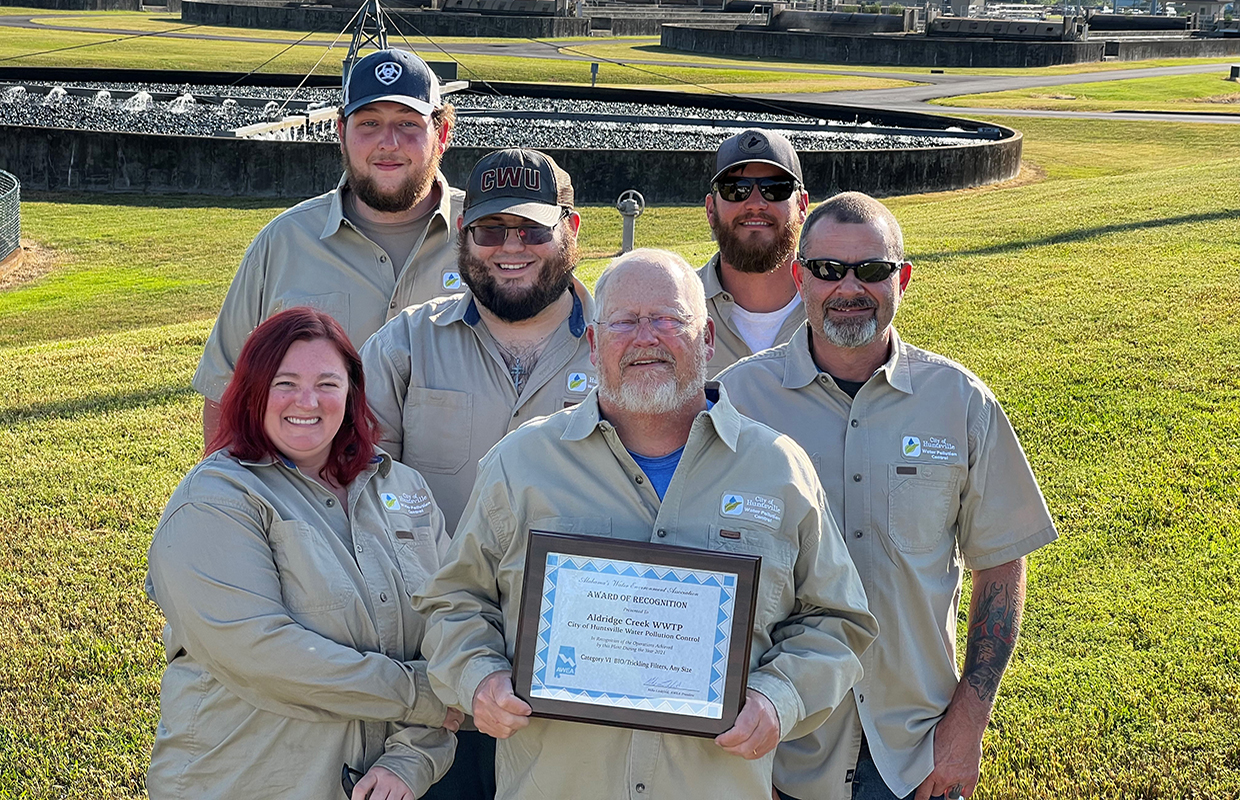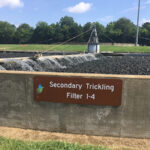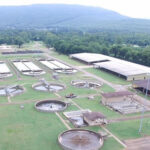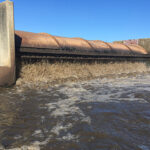HUNTSVILLE — Huntsville’s second-oldest wastewater treatment plant at Aldridge Creek won recognition from the Alabama’s Water Environment Association for operational excellence. The award came at this month’s AWEA Joint Annual Conference in Mobile.
The AWEA is a nonprofit organization which works to preserve, protect and manage Alabama’s waters. The competition for the recognition was tough because only the most confident of operators apply.
Plant operators submit a form and request consideration for the award by inviting inspectors to their plants – not a step many plant operators will put themselves through voluntarily.
“The judges are plant operators from another part of the state, but we already go through a state inspection every year, so inviting another inspection team in is not a popular concept, generally speaking,” said Mark Rittman, supervisor of the Aldridge Creek treatment plant. “Some plants just don’t want the scrutiny as long as they meet all the requirements for compliance on a state level.”
Plants are judged in categories from compliance to cleanliness, from basic daily operations to accurate paperwork and documentation. The Aldridge Creek Wastewater Treatment Plant easily passed the inspection.
“We were honored because you cannot have been out of compliance even for a small offense in the last five years, and the huge amount of paperwork required for the state has to be in perfect order,” said Rittman. “All of our plants are good, and the other supervisors would not have hesitated to submit them as well, but four of them are in the middle of upgrades.
“The rules say you cannot be in the process of an upgrade or have completed an upgrade within a certain timeframe of the inspection, eliminating the others from eligibility.”
Rittman has been with the city for 21 years and, before that, was with the city of Hartselle. He said overall wastewater pollution plant infrastructure is in excellent working order in Huntsville with upgrades going on constantly to make it more than capable of handling the expected growth in the years ahead.
While the city manages six total wastewater treatment plants, the wastewater pollution control infrastructure reaches into Limestone County as far as Athens.
The Spring Branch plant was the first water treatment plant built here. Aldridge Creek was second, built in 1964.
Magnolia Springs is a small plant and currently inactive. The city has diverted its flow, but it still has a state permit and can be used as a back-up, if needed.
The Triana plant is the largest and the city continues to add to it and upgrade it on an ongoing basis.
The Big Cove and the Chase area plants are in Hampton Cove and the Chase community near Brownsboro and Maysville.
Water Flows Downstream
In the state of Alabama, wastewater is defined as any used water that leaves a business or residence whether it is from a kitchen, a toilet, or lawn sprinklers. Used water passes through the sewer lines until it reaches a designated wastewater treatment plant.
Huntsville treats 100 million gallons of water per day and has capacity for growth in the years to come. Aldridge Creek accounts for 8.4 MGD of that treatment.
Sometimes, folks don’t think about the everyday processes that bring residents power and water, so Rittman walked through the process, which is somewhat fascinating.
“There are two water treatment scenarios,” he said. “Those who pull water out of the river for treatment and use, like Huntsville Utilities; and those who put the water back into the river after treating it.”
Rittman’s side of the process is pulling wastewater out of the river and into one of Huntsville’s wastewater treatment plants. Then it is dumped back into the river where it flows downstream until it reaches Decatur. There, the mixture of river and treated water from Huntsville is cleaned and treated again and stored in water towers where it is distributed to Decatur.
The most basic municipal water treatment process follows nine steps beginning with the collection of wastewater from the sewer system. It is screened and strained before a series of chemical treatments and processes that break down solids in the water, followed by more chemical treatments that remove all suspended solids.
“The water we put back in the river is a lot cleaner than what is in the river,” said Rittman. “And the river itself is much cleaner after every water dump.”
That, however, is not the water we drink in Huntsville.
The Tennessee Valley receives this same mixture of cleaned and treated water as it flows from Guntersville. Huntsville Utilities pulls the water out and, once it is treated again, filtered and disinfected, it is stored in a water tower where it is distributed to the Huntsville community as drinking water.
Old Technology Versus Newer Technology
Another unique aspect of the Huntsville wastewater treatment plants is that Rittman conducts public tours of the facilities upon request.
There are two plants at Aldridge Creek. The first is a trickling filter process plant built in 1964.
“In 1978, the trickling filter removed 75% of the pollutants in the water, but the state upped the EPA standards in 1978 to say we must remove 85% of the pollutants,” Rittman said. “There was a mad rush in the 1980s to build new plants to meet those standards.
“Most plants tore down the old plant but in Huntsville, we kept it and built the newer plant next to it in 1986.”
Rittman said the plant has undergone significant and almost ongoing upgrades since then, but the dichotomy between the two makes for an educational as well as informative tour attraction.
But Rittman doesn’t believe they would have received the AWEA award if it were not for his staff.
“This business is a mixture of biology, chemistry, maintenance, and well-rounded plant operations,” said Rittman. “But we face challenges everyday like sewer line breaks, leaking gravity pipes, and managing flash flood waters that sometimes overwhelm the system and flood manholes.
“The Water Pollution Control department is here 24/7 to immediately address these types of problems.”














